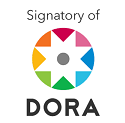Human talent management and productivity in civil servants of the Decentralized Autonomous Government, Mocache, Ecuador
Abstract
The objective is to establish the relationship between human talent management and worker productivity at municipal government of Mocache. The research was developed under a mixed, cross-sectional, correlational and non-experimental approach. A questionnaire was applied in order to test the relationship between the variables. The use of the Baremo facilitated the knowledge of the impact of the variables. The population consisted of 222 people and a sample of 141 workers. The Pearson Coefficient calculated was 0.676; therefore, there is a positive correlation between the variables. The alternative hypothesis that determines the existence of a direct relationship and therefore, human talent management can affect the productivity of the municipal government of Mocache was validated.
Downloads
References
Almengor, S. (2022). Desarrollo de habilidades blandas para el aumento de la productividad en el Talento Humano. Rev Saberes APUDEB, 5(2), 61-75 https://n9.cl/657a1i
AlQershi, N.A., Thurasamy, R., Ali, G.A., Al-Rejal, H.A., Al-Ganad, A. and Frhan, E. (2022), "The effect of talent management and human capital on sustainable business performance: an empirical investigation in Malaysian hospitals", International Journal of Ethics and Systems, 38(2), 316-337. https://doi.org/10.1108/IJOES-06-2021-0130
Ansar, N., & Baloch, A. (2018) Talent and talent management: definition and issues. IBT Journal of Business Studies, 14(2), 174-86.
http://dx.doi.org/10.46745/ilma.jbs.2018.14.02.14
Benzaquen, J., & Charles, V. (2020). A stratified bootstrapping approach to assessing the success of TQM implementation in Peruvian companies. Total Quality Management & Business Excellence, 33(1-2), 178-201. https://doi.org/10.1080/14783363.2020.1816165
Castro Vivar, K. V., Luna Altamirano, K. A., & Erazo Álvarez, J. C. (2020). Gestión de talento humano para la mejora laboral en el banco solidario. Telos, 22(1), 184-203. https://doi.org/10.36390/telos221.13
Cavero. I. (2023). Desafíos de la gestión del talento humano y la productividad del Poder Judicial de Ica - Sede Central. [Tesis doctoral, Universidad Nacional San Luis Gonzaga]. Repositorio Institucional INCA. https://n9.cl/0eqpr
Damnjanovic, A., Dimitrijevic, V., Nesic, S., Miskic, M., Mrdak, G., & Arsic, S. Risk influence of employee productivity on business failure: evidence found in Serbian SMEs. Sustainability, 15(6), 4705. https://doi.org/10.3390/su15064705
Dávila Pérez, M. V., Cely Calixto, N. J., & Cárdenas Gutiérrez, J. A. (2022). Diagnosis through interviews regarding the corporate identity of a firm and the management of personnel. Webology, 19(6), 1398-1406. https://n9.cl/pid5w
Ferreiro Seoane, F. J., Miguéns Refojo, V., & Atrio Lema, Y. (2021). Can Talent Management Improve Training, Sustainability and Excellence in the Labor Market? Sustainability, 13(12), 6645. https://doi.org/10.3390/su13126645
Guerrero Castro, W. A., Atencio González, R. E., & Pirona, J. A. (2021). Evaluación de la productividad del talento humano basado en un modelo de competencias laborales. Cienciamatria, 7(Extra1), 171-189. https://doi.org/10.35381/cm.v7i1.490
González, D., Quinteros, M., Ordoñez, A., & Torres, M. (2020). Productividad laboral en la Dirección Distrital del Ministerio de Transporte y Obras Públicas del Cañar. Revista Arbitrada Interdisciplinaria KOINONIA, 5(3), 488-517. http://dx.doi.org/10.35381/r.k.v5i3.908
Hadijah, H. S. (2023). Implementation of talent management as a strategy for achieving company competitive advantage. International Journal of Artificial Intelligence Research, 6(1.1), 1-6. https://doi.org/10.29099/ijair.v6i1.379
Hess, T. (2022). Defining Transformation Governance. In: Managing the Digital Transformation. Springer Gabler. https://doi.org/10.1007/978-3-658-38424-1_5
Inga, C. (2023). Análisis del proceso de inducción del talento humano en las PYMES. Journal of Economic and Social Science Research, 3(2), 30-44. https://doi.org/10.55813/gaea/jessr/v3/n2/66
Inostroza, M. A., Miranda Sánchez, P., Calderón Orellana, M. P., & Farah Ojeda, J. (2024). Exploring Latin American Organizational Social Work (OSW): a primary analysis of the conceptual, epistemic and methodological bases of OST in Latin American schools of social work. Social Work Education, 1–17. https://doi.org/10.1080/02615479.2024.2368735
Lema Guiracocha, P. E., Erazo Álvarez, J. C., & Narváez Zurita, C. I. (2019). El talento humano, factor clave para la gestión organizacional en Instituciones de intermediación financiera. Revista Arbitrada Interdisciplinaria Koinonía, 4(Extra 1), 349-375. http://dx.doi.org/10.35381/r.k.v4i1.461
Ngiu, Z., Jussibaliyeva, A., Hussain, S., Duisenbayeva, B., Ramirez, E., & Pelaez, G. (2021). The impact of talent management on performance: moderating effect of career management. Indian Journal of Economics and Business, 20(2), 371-387. https://n9.cl/rnna2
Obando Changuán, M. P. (2020). Capacitación del talento humano y productividad. ECA Sinergia, 11(2), 66-73. https://doi.org/10.33936/eca_sinergia.v11i2.2254
Oladimeji, K. A., Abdulkareem, A. K., & Ishola, A. A. (2023). Talent Management, Organizational Culture and Employee Productivity: The Moderating Effect of Employee Involvement. Journal of Human Resource Management – HR Advances and Developments, 26(1), 43–56. https://doi.org/10.46287/DPKF9953
Rajput, N., Das, G., Shivam, K., Kumar, C., Gaurav, K., & Nagpal, P. (2021) An inclusive systematic investigation of human resource management practice in harnessing human capital. Materials Today: Proceedings, 80(3), 3686-3690. https://doi.org/10.1016/j.matpr.2021.07.362
Ramírez, R., Espindola, C., Ruíz, G., Hugueth, A. M. (2019). Gestión del talento humano: análisis desde el enfoque estratégico [Human talent management: analysis from a strategic approach]. Información Tecnológica. 30(6), 167-176. https://doi.org/10.4067/s0718-07642019000600167
Rosas, M., López, K., & Castro, Y. (2022). Gestión de talento humano un aliado estratégico para mitigar los riesgos psicosociales en los colaboradores durante el retorno a las actividades post-pandemia impactando positivamente en la productividad. [Tesis de Especialización, Universitaria Angustiana]. UNIARI. https://n9.cl/tsssp
Sierra, M., Madriz, D., & Castillo, M. (2018). Sistema de gestión de la productividad del sector servicio en el municipio San Cristóbal del estado Táchira, Venezuela. Ciencia Unemi, 11(26), 63-78. https://doi.org/10.29076/issn.2528-7737vol11iss26.2018pp63-78p
Somani, R. (2021). Public-sector productivity (Part 1) Why is it important and how can we measure it? World Bank Publications. https://n9.cl/pu3b1
Velasteguí, R., Hidalgo, G., Mayorga, M. J., Garcia, M. V. (2024). Human Talent Management to Increase Productivity: Case Study EQUATOROSES EQR. In: Reis, J.L., Del Rio Araujo, M., Reis, L.P., dos Santos, J.P.M. (eds) Marketing and Smart Technologies. ICMarkTech 2022. Smart Innovation, Systems and Technologies. (vol 344). Springer. https://doi.org/10.1007/978-981-99-0333-7_5
Copyright (c) 2025 Liz Geanella Aspiazu-Sánchez, Renier Esquivel-García

This work is licensed under a Creative Commons Attribution-NonCommercial-ShareAlike 4.0 International License.
CC BY-NC-SA : Esta licencia permite a los reutilizadores distribuir, remezclar, adaptar y construir sobre el material en cualquier medio o formato solo con fines no comerciales, y solo siempre y cuando se dé la atribución al creador. Si remezcla, adapta o construye sobre el material, debe licenciar el material modificado bajo términos idénticos.
URL de OAI-PMH: https://iieakoinonia.org/ojs3/index.php/gestioep/oai














